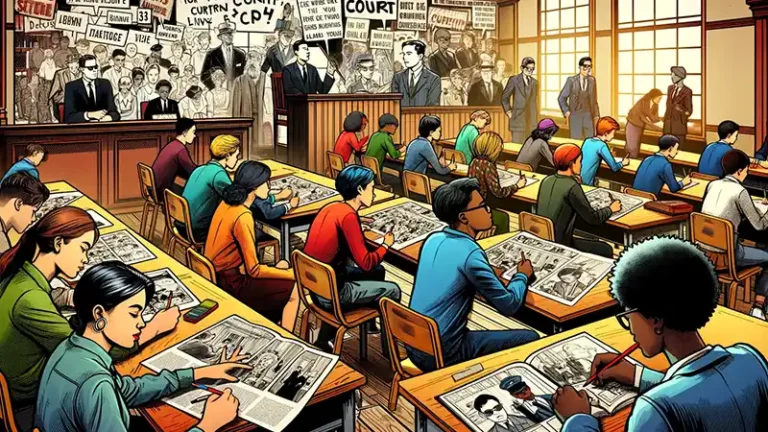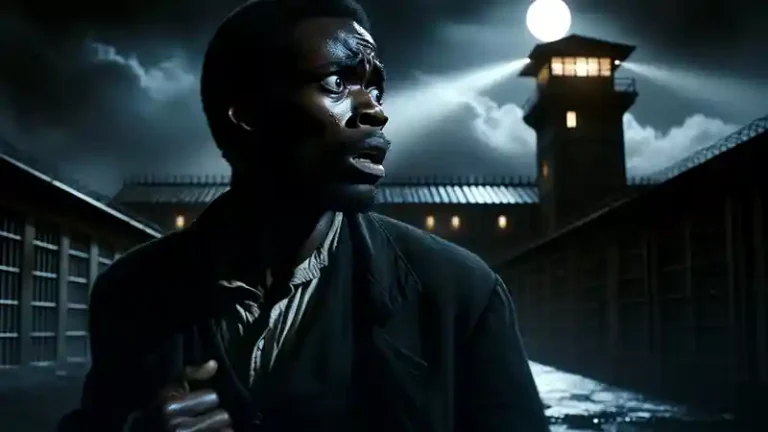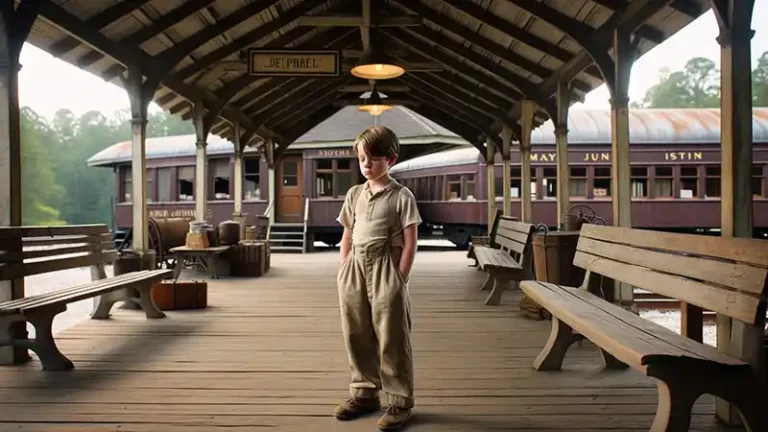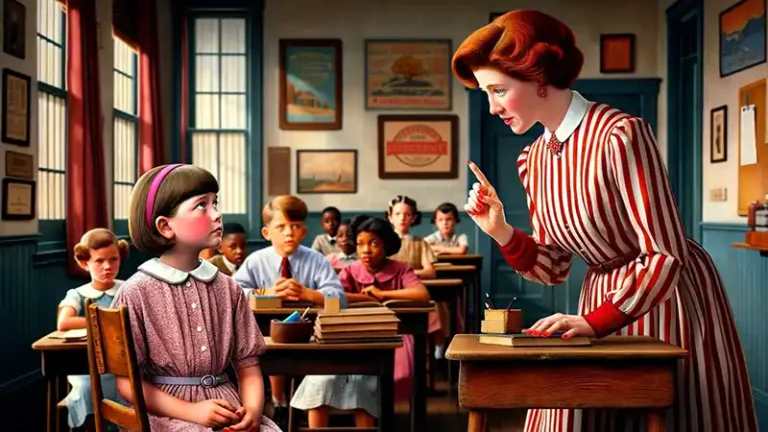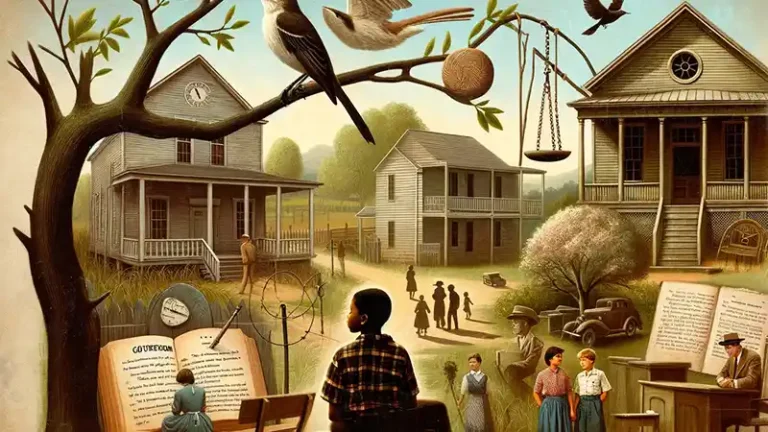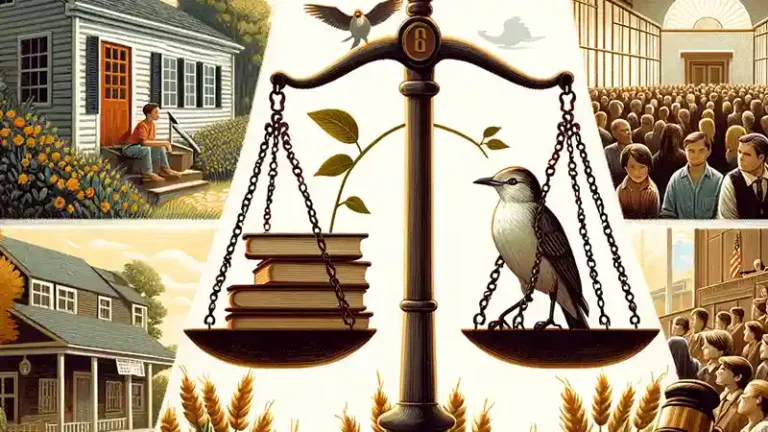To Kill a Mockingbird Quotes Analysis Activity
The Chapter 5 activity for To Kill a Mockingbird quotes analysis is a tool for teachers to deepen students’ understanding and appreciation of Harper Lee’s classic. This hands-on approach encourages students to engage actively with the text through the use of chart paper, sticky notes, and the novel itself. As an educator, you’ll guide students in focusing on critical analysis, enhancing their written communication, fostering a deeper literary appreciation, and drawing connections between the novel’s themes and broader societal and moral questions. The activity is structured to allow students to analyze specific quotes from the chapter, offering them a platform to articulate their interpretations, delve into the author’s use of language, and relate the characters and themes to real-world issues. This collaborative and immersive methodology is designed not only to augment students’ comprehension of the novel but also to develop their critical thinking and expressive skills, essential for their academic and personal growth.
Learning Goals
- I will be able to critically analyze specific quotes from To Kill a Mockingbird.
- I will be able to effectively communicate my interpretations and thoughts in written form.
- I will be able to reflect on the author’s use of language and style.
- I will be able to connect the themes and characters of the novel to broader social and moral questions.
Materials
TKAM Digital Book
TKAM Chapter 5 Audio (23:27)
- Chart paper
- Sticky notes
Process
- Hang 5 pieces of chart paper with the quotes to analyze on each page.
- Introduce the quotes to students so they have a chance to recognize them while reading the chapter.
- Read chapter 5 of To Kill a Mockingbird.
- Working in small groups (or alone, if preferred), students write down their thoughts. connected to each quote on sticky notes.
- Have students post the sticky notes on the quote pages.
- Review the sticky notes and add to them as a whole class.
To Kill a Mockingbird Quotes Analysis
We saw Uncle Jack every Christmas, and every Christmas he yelled across the street for Miss Maudie to come marry him. Miss Maude would yell back, “Call a little louder, Jack Finch, and they’ll hear you the post office, I haven’t heard you yet!” Jem and I thought this a strange way to ask for a lady’s hand in marriage, but then again Uncle Jack was rather strange. He said he was trying to get Miss Maudie’s goat, that he had been trying unsuccessfully for forty years, that he was the last person in the world that Miss Maudie would think about marrying but the first person she thought about teasing.
Miss Maudie settled her bridgework. “You know old Mr. Radley was a foot-washing Baptist-” “That’s what you are, ain’t it?” “My shell’s not that hard, child. I’m just a Baptist.” “Don’t you all believe in foot-washing?” “We do. At home in the bathtub.” “But we can’t have communion with you all-” Apparently deciding that it was easier to define primitive baptistry than closed communion, Miss Maudie said: “Foot-washers believe anything that’s pleasure is a sin. Did you know some of ‘em came out of the woods one Saturday and passed by this place and told me me and my flowers were going to hell?” “Your flowers, too?” “Yes ma’am. They’d burn right with me. They thought I spent too much time in God’s outdoors and not enough time inside the house reading the Bible.”
“There are just some kind of men who—who’re so busy worrying about the next world they’ve never learned to live in this one, and you can look down the street and see the results.”
“Son,” he said to Jem, “I’m going to tell you something and tell you one time: stop tormenting that man. That goes for the other two of you.”
What Mr. Radley did was his own business. If he wanted to come out, he would. If he wanted to stay inside his own house he had the right to stay inside free from the attentions of inquisitive children, which was a mild term for the likes of us. How would we like it if Atticus barged in on us without knocking, when we were in our rooms at night? We were, in effect, doing the same thing to Mr. Radley. What Mr. Radley did might seem peculiar to us, but it did not seem peculiar to him. Furthermore, had it never occurred to us that the civil way to communicate with another being was by the front door instead of a side window? Lastly, we were to stay away from that house until we were invited there, we were not to play an asinine game he had seen us playing or make fun of anybody on this street or in this town.
“I thought I wanted to be a lawyer but I ain’t so sure now!”

